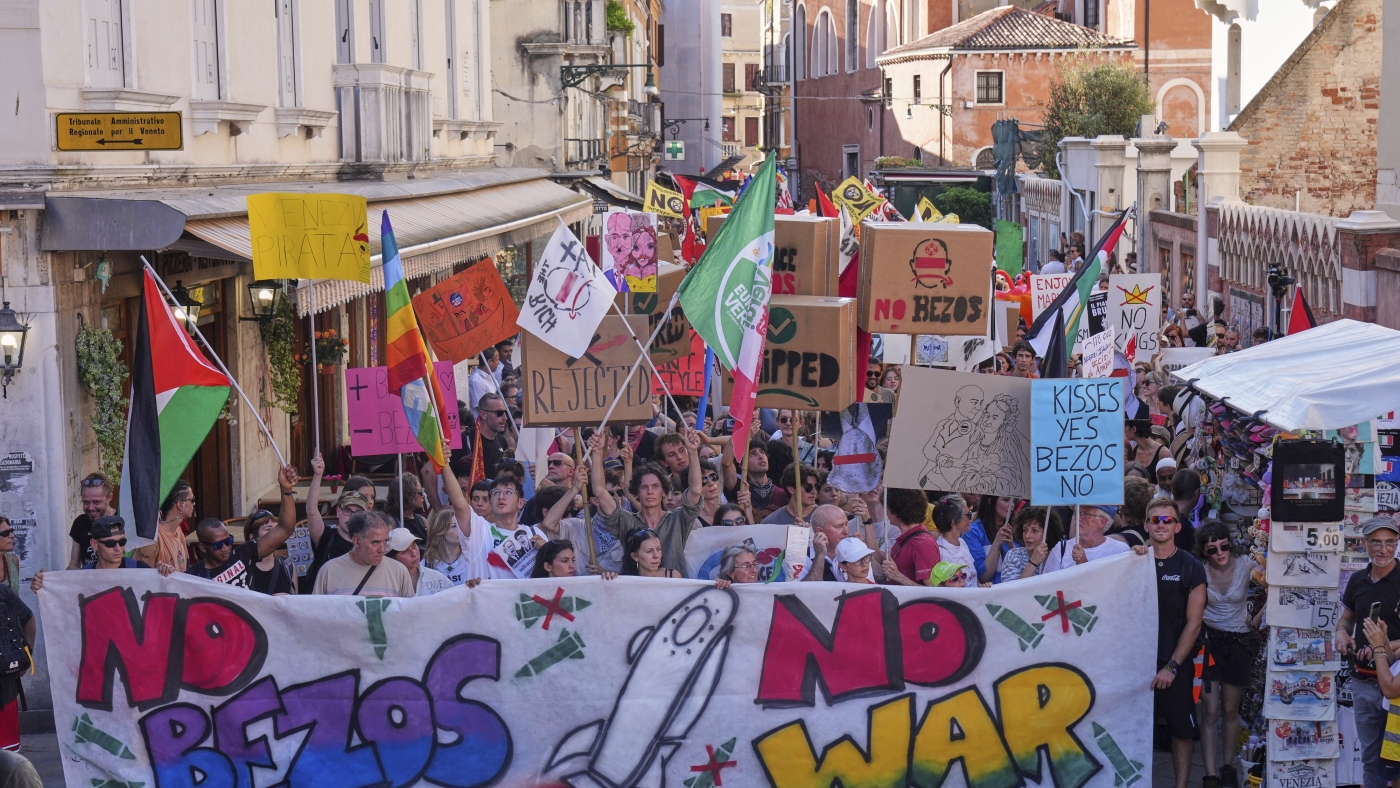The recent wedding of Jeff Bezos and Lauren Sánchez in Venice sparked intense public reactions, providing a vivid case study of cultural tensions surrounding wealth, tourism, and local community rights. This analysis delves into the multifaceted controversy, the protests it generated, and what it reveals about contemporary issues facing iconic cities overwhelmed by luxury events and overtourism.
Venice, renowned for its unique architecture and waterways, is also infamous for its struggles with overtourism and the friction it creates between residents and visitors. Against this backdrop, the decision of Jeff Bezos, one of the world’s wealthiest individuals, to host a lavish three-day wedding celebration drew immediate public scrutiny. While luxury events have long been a feature in Venice, the Bezos wedding became symbolic of larger grievances. Venetians are increasingly vocal about the exploitation of their city by global elites who, they feel, commodify local culture and space without consideration for community impact or sustainability.
The protests that erupted in Venice were a direct response to the perceived excesses of the Bezos wedding. Hundreds of protesters took to Venice’s central streets, chanting slogans such as “Kisses yes, Bezos No” and “No Bezos, no War,” signaling opposition not necessarily to the celebration of love but against what they viewed as the ostentatious and exclusionary use of a public heritage city. The protests coincided with the wedding’s third and final day, underscoring sustained discontent. Activists framed the event as emblematic of social inequality and the negative impacts of elite tourism. One notable impact was the alteration of the wedding’s main venue, forced to move away from Venice’s city center due to mounting pressure and logistical challenges stemming from protests. Protesters claimed this as a victory, seeing it as a demonstration that civic activism can influence events dominated by influential global figures.
Several themes surface from the controversy surrounding the Bezos wedding in Venice:
– Overtourism and Accessibility: Venice has been grappling with waves of tourists that strain its fragile infrastructure and dilute resident quality of life. The influx of well-heeled guests and exclusive access to locations typically open to the public raised concerns about the city’s accessibility and equitable use of its spaces.
– Economic Disparities: Bezos’ vast wealth starkly contrasts with the socio-economic realities of many Venetians, many of whom face high costs of living and job insecurity. The wedding was seen as a display of wealth disconnected from the lived experience of locals.
– Cultural Commodification: The protests reflected fears that Venice’s cultural heritage is increasingly a backdrop for spectacle and commercial gain, eroding authentic community life.
– Environmental Impact: Large-scale events often exacerbate environmental pressures in delicate ecosystems. Venice’s waterways and architecture are particularly vulnerable to damage from overcrowding and heavy foot traffic.
While the wedding events featured celebrity guests and lavish parties that drew international attention, the clamor from Venetians highlighted the need for more conscientious event planning in historic urban spaces. It calls into question how cities can welcome celebrations and tourism while preserving their cultural and social integrity. Local activists emphasized that the issue was not personal animosity toward Bezos or celebration itself but the manner in which such displays reinforce systemic inequalities and disrupt community life. Their proclamations of “Kisses yes, Bezos No” articulate a nuanced rejection of the excesses, not the human moments behind them.
The Bezos wedding protests in Venice encapsulate a broader global challenge: reconciling global wealth and tourism with local values and sustainability. Key takeaways include:
– Community Engagement is Crucial: Large-scale events in historic cities must involve local residents in planning to prevent alienation and maximize shared benefits.
– Reevaluating Tourism Models: Cities like Venice need to develop tourism strategies that prioritize long-term livability, environmental preservation, and cultural respect over short-term financial gains from elite visitors.
– Symbolism Matters: High-profile events become symbolic battlegrounds over social justice, cultural identity, and power dynamics, influencing public perception well beyond their immediate context.
– Activism Can Effect Change: The ability of protesters to shift the wedding venue demonstrates the influence of organized, peaceful civic action in shaping urban life.
The frictions seen here are unlikely to dissipate soon. Instead, the Venice episode serves as a lens emphasizing the delicate balancing act required to honor history, support residents, and adapt to the realities of a globalized world where immense wealth often intersects with treasured cultural spaces. In preserving the soul of Venice, one must account not only for the grandeur of celebrations but also for the voices of those who call the city home. The “Kisses yes, Bezos No” movement is a chapter in this ongoing dialogue between tradition, modernity, and the right to a city that belongs to all who live in it.











